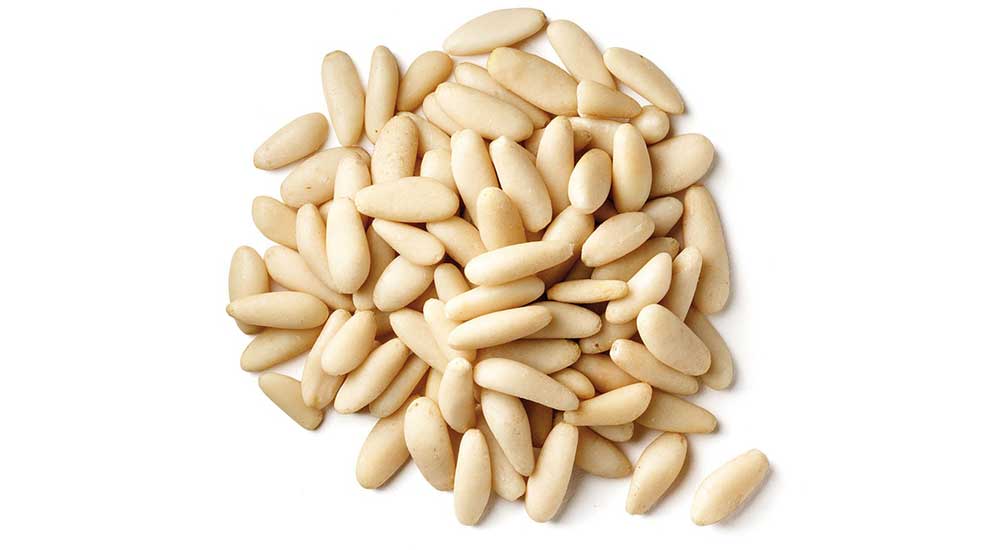Coconut Ice Cream
- 20 Apr - 26 Apr, 2024

Pine nuts provide 673 calories per 100gm; 68g of fat, 2mg of sodium, 597mg potassium, 14g of protien and 13g of carbohydrate.
· The pine nut is an “old” seed: it has to mature for three years in the pine cone before it can be harvested.
· Native to Asia, Korean pine nuts are the most widely sold variety in the world. They come from China, Russia, Korea, Pakistan, Afghanistan and Iran.
· In the native Mapuche culture of Chile and Argentina, pine nuts were an important form of foraged food and were used to make flour for bread-making.
· Chinese varieties are known for their strong flavour, while European types of pine nuts have higher levels of protein.
· The ancient Greeks and Romans believed pine nuts had aphrodisiac properties and recommended their consumption with honey and almonds.
· Pine nuts are high in calories but they do contain important substances, such as pinolenic acid which stimulates hunger-suppressing hormones, albeit temporarily.
· They are rich in fiber as well as protein content, vitamin B12, calcium and a great deal of phosphorus.
· Pine nuts are rich in zinc which supports your immune system and aids in wound healing.
· They also provide generous amounts of the essential vitamins E and K. While vitamin K allows you to form clots to prevent bleeding after injury, vitamin E helps you produce red blood cells essential for oxygen transport.
· Pine nuts' magnesium content also offers health benefits, as the nutrient contributes to energy production, and it makes up a part of your teeth and bones.
According to researchers, Korean pine nut PUFAs [polyunsaturated fatty acids] suppress appetite and affect food intake. They contain nutrients that help boost energy, including monounsaturated fat, protein and iron. Pine nuts are also a good source of magnesium, low levels of which can lead to fatigue.
COMMENTS